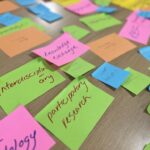Government and funding organisations generally expect researchers to be aware of the potential difference their research could make to society, to be able to articulate how impacts could be generated, to consider ways of accelerating such change, and to take account of benefits resulting from their research. The Research Impact Team supports researchers by providing advice on impact idea generation, planning, execution, evidencing and reporting.
The Research Impact team manages UKRI-funded Impact Acceleration Accounts, the University’s Internal Impact & Innovation funds and other impact ‘block’ funding. These impact funding streams support activities that strengthen relationships with strategic external partners and maximise the potential for research impact in any sector with ‘non-academic’ research users.
The Research Impact Team also supports the Directors of Impact & Innovation, coordinates the University’s Impact REF preparations, provides Research Impact training (both internal and external), and bolsters the University’s impact work via our Impact and Research blogs and the team’s Twitter account (@UStAResearch).
Recent impact news
Browse by school/department
See All Posts
Meet the Research Impact team:
Martin Brooks, Head of Research Impact
Rees Hughes, Research Impact Officer (Harmonised IAA Manager)
Euan Donohue, Research Impact Coordinator
Ishani Khemka, Research Impact Press Officer (Interim)
Victoria Lee, Research Impact Press Officer (Interim)
Please contact the Research Impact team if you have any research impact related query.
Email: [email protected]
Meet the Engagement with Research team:
Sandra Appleby-Arnold, Head of Engagement with Research
Please contact the Engagement with Research team if you have any engagement with research related query.
Email: [email protected]



